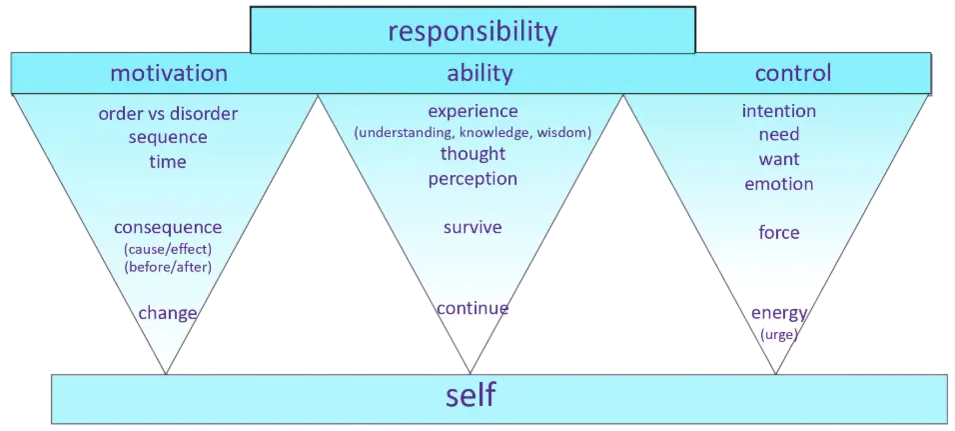Davis Autism Approach®
Nurturing the Seed of Change
A Pathway to Full Participation in Life
The Davis Autism Approach is a non-invasive, gentle approach designed to allow autistic individuals aged 8 to adult to participate more fully in life. This one-on-one program can be conducted by a Davis Autism Approach Facilitator or by a parent or loved one who can be trained and mentored by a Davis Autism Facilitator-Coach.
The program incorporates many of Ron Davis’ “tried and trusted” methods which have been used successfully worldwide since 1982 to assist those with learning differences. Ron Davis has been working successfully with autistic individuals throughout this time and has now made this work accessible to others through the Davis Autism Approach.
This approach consists of three parts, each one addressing the fundamental needs of autistic individuals.
Davis Autism Approach is a three-part program.
1. Individuation – Creating an awareness of self.
Individuation is what takes place during early childhood development when a child becomes aware that he is a separate individual, with opinions and feelings that are different from those held by others. We usually see this taking place by the time a child is two, and has developed a sense of himself as an individual, has a mind of his own, and thus, rejects suggestions or requests made by others. We refer to this as the “terrible twos”, even though we know it is a healthy and desired developmental step! Children with autism either fail to complete this step in development, or regress after beginning down the path.
To ensure this process has been completed and we have our starting point we use a two-part process.
Firstly, we assist the individuals to become oriented to the world. They need to have brought all of their senses into alignment so they are aware of their environment and their perceptions of the world are accurate. We use a variety of orientation methods, auditory, visual or kinesthetic, depending upon the individual’s strengths. Then we assist the individual to create a model, which can represent them in the next part of the process.
2. Identity Development – Exploring ‘life’s natural lessons’.
Identity development refers to the learning that normally takes place as children grow and learn concepts that help them to understand how the world works and how they work. When individuals are disoriented much of the time, they do not learn or fully comprehend many of these basic concepts, these ‘life lessons’, and so they do not have a good or complete understanding of how things work, and how they fit into the world. For example, they may not understand about change or consequence, and so continue to repeat the same behaviors, expecting a different outcome. They may not understand “authority”, and so refuse to accept any authority except their own desires, much as a very young child normally does. Identity development provides a sense of self, and one’s place in the real world of cause and effect.
There are approximately 30 concepts, which are addressed throughout this stage, starting with ‘change’ and ending with ‘motivation’ and ‘responsibility’.
When these concepts are fully understood and integrated they provide a framework for higher level logic and problem solving skills. We have found many individuals who are not on the autistic spectrum also have great benefit from creating these concepts and integrating them into their lives.
The concepts to be explored form three pyramids. Each pyramid starts from a base concept like change, and each concept builds on the one done before it. Higher-level concepts are introduced when all three pyramids have been completed.

3. Social Integration – Relationship Concepts.
Social integration is the final area to be addressed. Once a person has a sense of his place in the world, he is ready to begin the task of understanding how relationships work and learning how he can fit into the world of people. This is the final stage in the Davis Autism Approach Program. Again these concepts are explored through creating clay models, followed by matching them to life experience.
Programme Delivery
Davis Autism Approach may be delivered in either of two ways:
Full Time Facilitator/Coach
A Davis Autism Approach Facilitator/Coach can deliver the entire program.
This is usually done in one-week blocks, and can take from 4 to 6 weeks. The individual would typically spend time between blocks allowing the concepts mastered to become incorporated into his identity.
Facilitator and Parent/Tutor Combo
Alternatively, the client can spend an initial block of time with the facilitator, and then a parent or tutor could be trained by the facilitator to deliver the next segment of the program.
When that segment is completed, the client returns to the facilitator, and this process is repeated up to the end of the identity development portion of the program. The client then returns to the facilitator for the final segment of the program, Social Integration.